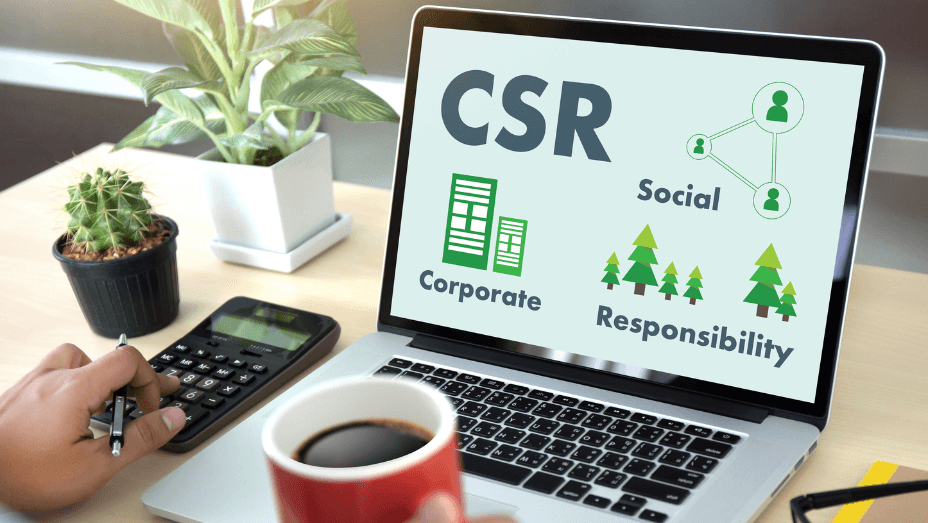Sustainability is not just a buzzword. It's a globally shared responsibility both individuals and businesses must take. Leaving aside the obvious benefit (of, you know, keeping Earth alive), there are business advantages to embracing a more sustainable approach.
Why is that – and more importantly, how to build a culture of sustainability in your business?
We took a deep dive into the topic and asked business leaders on how they tackle the matter.
Read on and find out more.
Defining the Culture of Sustainability
The first step to fixing any issue is admitting you have one. So, defining a culture of sustainability begins with knowing what, more exactly, are some of the things you may not be doing right now.
Every business is different from this perspective, but the one unifying idea to becoming more sustainable as an organization revolves around helping this planet heal and giving it time to regenerate, instead of merely taking from it.
A culture of sustainability is one where individuals and businesses could, for example:
- Opt to use recycled materials as often as possible
- Choose and encourage eco-friendly transportation methods
- Encourage employees to work from home or in hybrid work models
- Use digital marketing methods instead of print
- Use normal coffee instead of coffee pods (or recycle the latter)
- Avoid using paper as much as possible
...And so on.
We obviously can't go back to where mankind was two, three hundred years ago. We can't leave technology and modern comforts behind just like that. What we can (and should do), however, is find better, healthier, more balanced ways of enjoying what we've built without ruining it at the same time.
Sustainability is not a fad, nor is it a way to embrace any kind of extremes. It's a common-sense way of doing business that should (and will), in time, become the norm.
What Is Organizational Culture?
To build a sustainable organization, you should first understand what organizational culture is.
Many businesses think organizational culture is built around free coffee, ping-pong tables, and pizza Fridays. However, the culture of an organization runs a lot deeper than that. In fact, organizational culture is the backbone of every business. It's the set of values, traditions, beliefs, and behaviors that make a company what it is.
A strong culture will unify your employees and help them stay focused on the company's goals. The right culture will also attract top talent and help with retention.
On the other hand, a weak organizational culture can lead to high turnover rates, absenteeism, and low employee engagement.
A good, thriving, and engaging organizational culture is built not just on paper, but in the day-to-day actions of management and team members alike, in how the business operations are run, and in the entire business strategy you embrace.
How Does the Culture of Sustainability Impact Organizational Strategies?
A culture of sustainability can be extremely powerful in any organization. It can help you not just do less damage to the environment but also:
- Reduce expenses
- Improve your brand image and reputation
- Attract and retain top talent
- Increase employee engagement and creativity
- Make your business more resilient
- Build a competitive edge
- Build a loyal customer base
- Attract more customers keen on making sustainability part of their lives
- Improve employee engagement by making them feel like they’re part of a bigger story
According to Harvard Business Review, sustainability in business is not even a trend anymore – it's a full-on, mainstream approach to doing business. In essence, this is nothing but a normal response to consumers and their preferences – which, by the way, lean towards sustainability now more than ever. So much so that more than a third of the global consumers are actually happy to pay more for products and services from sustainable businesses.
Sustainability should be at the heart of any organization's culture, as it pertains to both social responsibility and environmental consciousness. It is no longer an option to "go green" or have a sustainability plan; it is now a core competency for all businesses across all industries. The good news is that there are many ways to make your business more sustainable, and each step you take will bring you closer to achieving your sustainability goals.
“One of the most important things to consider is what sustainability means to you, and your organization in particular. Sustainability is a broad term, and can apply to a variety of principles, practices, and policies. Prioritizing sustainability is essential to promote the success of any business.
– Wanda Tompkins, Director of Operations @ Theara

Where to Start: 21 Best Practices for Building the Culture of Sustainability in Your Workplace
Clearly, building a sustainable organizational culture is one of the best things you can do – for your business, for your team, and for the planet.
Where to start, though? What are some of the sustainable organizational best practices you can adopt fairly easily?
Here are some examples:
Define Your Sustainability Goals
The first step in building a culture of sustainability is to define your goals and objectives. What does sustainability mean to you? What are your specific goals? Once you have a clear understanding of what you want to achieve, you can start putting together a plan of action.
Run an In-Depth Audit on Your Current Practices
How are you doing now? Do you have any sustainability initiatives in place? Do you know where you can improve? Conducting an audit will give you a clear picture of your current state and help you identify areas for improvement.
Bring Everyone on Board
Once you have defined your goals and objectives, it's time to start involving your employees. Sustainability is a team effort, and everyone needs to be on board if you want to be successful. From the highest levels of leadership to the latest team members, everyone should be aware of your organization's efforts to become more sustainable.
Update Your Tech
One of the best ways to make your business more sustainable is to update your tech infrastructure. Newer, more efficient technology can help you reduce your energy consumption and save money. It can also help you automate processes, which can free up time for your employees to focus on more important tasks.
DO make sure you only dispose of old tech in a proper, eco-friendly way. Donating it to charitable causes is a good alternative here.
Incentivize the Entire Team to Adopt Sustainability – At Work & Outside of It
A great way to encourage your employees to live more sustainable lifestyles is to offer incentives. From discounts on eco-friendly products to rewards for conserving energy, there are many ways to incentivize your team. You can also offer incentives for employees who carpool or use public transportation.
“We started building a culture of sustainability by bringing sustainability into our communications more frequently. The more we started to talk about sustainability, the more our employees focused on it when doing research, doing their work, and much more.”
– Teri Shern, Co-founder @ Conex Boxes
Adopt a Paperless Business Model
It really isn't difficult to go paperless in 2022, even more so after a pandemic where digitization proved to be pivotal. Paperless offices save trees, conserve water, and require less energy to operate. In other words: It's a win-win for everyone involved.
Reduce Waste at All Levels
One of the easiest ways to make your business more sustainable is to simply reduce waste. This can be done by implementing a recycling program, composting food waste, and using recycled materials. You can also reduce waste by reducing your overall consumption.

Encourage the Team to Not Use Disposable Utensils
When it comes to sustainability, every little bit counts. One way to reduce waste is to encourage your employees to use reusable utensils and plates. This might seem like a small change, but it can have a big impact on the environment. For instance, more than 40 billion utensils are wasted every year in the USA – all of it being plastic that ends up in landfills and the oceans.
Switch to Sustainable Office Supplies
Office supplies are a necessary part of any business, but they can also be a major source of waste. From paper to pens, there are many ways to make your office more sustainable. One way is to switch to recycled or reusable office supplies. You can also purchase eco-friendly office supplies made from sustainable materials.
Encourage and Support Recycling, Upcycling, and Downcycling
Recycling is a great way to reduce waste, but it's not the only way. Upcycling (the process of reusing objects or materials to create new products) and downcycling (the process of breaking down materials to create new, lower-quality products) are also great options for reducing waste and saving resources. Encourage your employees to recycle, upcycle, and downcycle as much as possible.
Encourage and Support Green Transportation
Another great way to make your business more sustainable is to encourage and support green transportation. This can be done by offering incentives for employees who carpool or take the bike to work, or by offering monthly bus or train passes. You can also install electric vehicle charging stations at your office.
Bring In More Plants
Not only do plants make your office look more inviting, but they can also help improve air quality. Indoor plants have been shown to remove harmful toxins from the air, which can improve the health of your employees. Plus, they're a great reminder of just how beautiful our planet is. :)
Run More Virtual Meetings
Not only are virtual meetings more sustainable, but they're also more convenient. With today's technology, there's no need to travel for most meetings. You can easily connect with employees and clients online. This saves time, money, and resources.
If you have adopted a hybrid work model, hybrid work software can help you and your team seamlessly collaborate wherever they choose to work. Even more, it can help you be more sustainable by encouraging a healthy balance between remote and in-office work and by helping your team members avoid unnecessary (and energy-consuming) trips to the office.
Learn to Better Manage Your Energy Consumption
One of the best ways to make your business more sustainable is to learn how to better manage your energy consumption. This can be done by auditing your energy use, implementing energy-saving technologies, and developing an energy-management plan. You can also encourage your employees to conserve energy at work and at home.
Adopt Sustainable Lighting
Lighting is a necessary part of any business, but it can also be a major source of energy consumption. To make your lighting more sustainable, switch to LED bulbs and solar-powered lights. You can also install automatic light sensors that turn off the lights when they're not needed.

Embrace Renewable Energy as Much as You Can
If you're looking for a truly sustainable way to power your business, renewable energy is the way to go. Solar, wind, and hydropower are all great options for powering your office. You can also purchase Renewable Energy Credits (RECs) to offset your energy consumption.
Establish Clear Eco-Friendly Guidelines & Principles
As a business, it's important to have clear eco-friendly guidelines and principles in place. This will help ensure that your employees are on the same page when it comes to sustainability. Establishing these guidelines will also send a strong message to your customers and clients that you're serious about being sustainable.
Encourage Small, but Impactful Sustainability-Oriented Actions
You don't need to make major changes to your business to be sustainable. Sometimes, the small things can make the biggest difference. Encourage your employees to take small sustainability-oriented actions, such as turning off the lights when they leave a room, recycling their waste, or taking shorter showers.
Lead by Example
As the owner or manager of a business, you have the power to set the tone for your company. If you want your business to be more sustainable, lead by example. Be conscious of your own actions and make sure they align with your sustainability goals. Your employees will likely follow suit.
“To create a good habit among your employees, managers must adopt that habit first and show their employees that they are among the first ones to follow it. If you want to incorporate sustainability in your organization, you’ll need to practice it as often as possible.
Employees are generally more motivated if their managers are leading from the front. You can portray this behavior from your end by implementing sustainability initiatives, including the ESG agenda in your company’s values, and celebrating any sustainability victories you’ve achieved.”
– Henry Abenaim, CEO @ Fundingo
Track and Report on Your Journey to Sustainability
As you work to make your business more sustainable, it's important to track and report on your progress. This will help you identify what's working and what needs improvement. It will also show your employees, customers, and clients that you're committed to sustainability.
There are many ways to make your business more sustainable, and these are just some examples. Most of them require minimal effort and financial investment – but they can definitely pay off.
“Emphasize continuous improvement. Continuously improving an organization's sustainability management system can help in bringing massive gains for the company. Organizations should focus on the positive aspects rather than the negative ones. The race of sustainability is owned by companies that are slow and steady with their efforts. “
– Aima Irfan, Editor-in-Chief @ InsideTechWorld

Common Problems in Building the Culture of Sustainability
A lot of companies are making efforts in the good direction, though. Intel, for example, one of the leading tech businesses in the world has managed to switch to 82% renewable energy – and many others are paving the way for large enterprises and small businesses alike to adopt more sustainable practices.
Even so, building a sustainable organizational culture isn't easy. Here are some of the most common problems in building a culture of sustainability:
Lack of Awareness and Understanding
One of the most common problems in building a culture of sustainability is a lack of awareness and understanding. This can be due to a lack of education or simply not knowing where to start. If employees don't understand why sustainability is important, they're less likely to be engaged in sustainable practices.
Lack of Resources
Another common problem is a lack of resources. This can include both financial and human resources. If a company doesn't have the money to invest in sustainable practices, or the staff to implement them, it can be difficult to get started.
Short-Term Thinking
Many businesses are focused on short-term gains, which can make it difficult to invest in long-term sustainability. This is because sustainable practices often have upfront costs that may not offer immediate financial benefits. For example, investing in solar panels can be costly, but it can save money in the long run.
Change Can Be Difficult
Change is never easy, and it can be especially difficult for businesses. This is because businesses are usually set in their ways, with established processes and procedures. When you try to introduce new sustainable practices, it can be disruptive and met with resistance.
Building a culture of sustainability takes time, effort, and commitment. But it's worth it, both from a business standpoint and from an environmental perspective. Realistically, overcoming the aforementioned challenges will not be easy, but it is more than possible with careful planning and execution.

How to Engage Employees in Creating and Maintaining the Culture of Sustainability
Your employees play a crucial role in creating and maintaining a culture of sustainability in your organization. After all, they are the ones who will be implementing sustainable practices. Here are some tips for engaging employees in the culture of sustainability:
Educate Them About Sustainability
The first step is to educate your employees about sustainability. This can include why it's important and how it relates to your business. You can do this through training programs, informational sessions, or simply by sharing articles and resources.
The internet is a treasure trove of information to help more people realize the impact of their actions on the environment – both in a good sense and in a not-so-good one. Here are some of the best resources you can share with your team to help them become more aware of just what a huge change they can make in the world:
- The Story of Stuff Project: The Story of Stuff is a 20-minute animated documentary about the lifecycle of material goods. It's a great way to get employees thinking about the impact of their consumption habits.
- This 18-minute TED Talk by Leyla Acaroglu is all about how we can make products and systems more sustainable. It's a great introduction to the concept of sustainability for employees who are new to the topic.
- The True Cost: The True Cost is a documentary about the human and environmental cost of fast fashion. It's a powerful film that will open your employees' eyes to the realities of the fashion industry.
Get Them Involved in the Decision-Making Process
When you're making decisions about sustainability, involve your employees. This will help them feel like they're a part of the process and give them a chance to provide input, rather than make them feel like they're being forced to adopt certain practices.
People tend to be more invested in something when they have a say in it. So, by involving your employees in the decision-making process, you're more likely to get buy-in for sustainable practices.
Make Sustainability Fun
Sustainability doesn't have to be all work and no play. There are plenty of ways to make sustainability fun for employees. For example, you could hold competitions to see who can save the most energy or water. Or, you could have a "green team" that comes up with creative ways to make your workplace more sustainable.
By making sustainability fun, you're more likely to engage employees and get them on board with sustainable practices.
Encourage Sustainable Practices
Encourage your employees to adopt sustainable practices in their own lives. This can include recycling, conserving energy, or using public transportation. The more employees practice sustainability in their own lives, the more likely they are to be supportive of sustainable practices at work.
Plus, when employees see that sustainability is important to you, it can have a positive impact on your workplace culture.
Recognize and Reward Sustainable Behavior
Recognize and reward employees when they display sustainable behavior. This can be through verbal praise, bonuses, or other incentives.
Be the Change You Want to See in the World
You can't tell your team to do something and then do the exact opposite. As mentioned before, leading by example is one of the best ways to drive an organizational culture focused on sustainability – and get complete buy-in from your team too.
“Every leadership role develops consciousness. All leaders must adopt conscious leadership philosophies and resilient living habits. In contrast to a culture characterized by overloading rigidity and fear, a culture that is peaceful, healthy, and sustainable is fostered by a saturation point of leaders who live resilient lives.”
– Sai Blackbyrn, CEO @ CoachFoundation
Building a Culture of Sustainability. An Overview
You can't create a culture of sustainability overnight. It takes time, effort, and commitment. But it's worth it, both from a business standpoint and from an environmental perspective. Realistically, overcoming the aforementioned challenges will not be easy, but it is more than possible with careful planning and execution.
Start small, and be consistent. Making sustainable practices a part of your workplace culture won't happen overnight. It's important to start small and be consistent with your efforts. For example, you could start by implementing recycling programs or energy-saving initiatives.
And, as you continue to build momentum, you can add more sustainable practices into the mix. The key is to be persistent in your efforts and to keep moving forward. Rome wasn't built in a day, but it sure was built on top of consistent, regular hard work.
There's no other secret to sustainability, really – or to building a successful business of any kind. Be consistent, adjust as you go, and keep aiming high!










